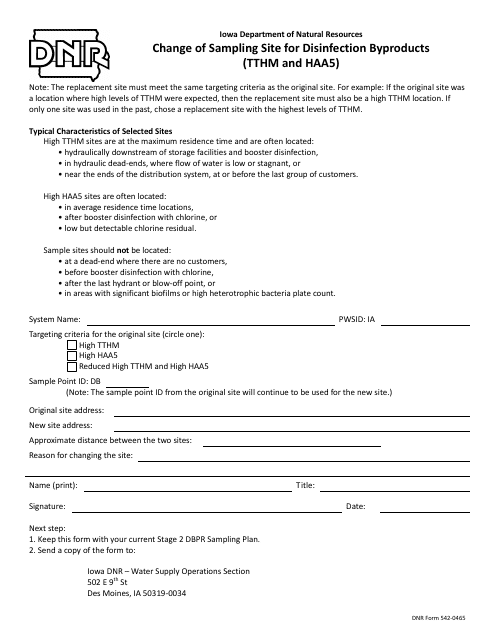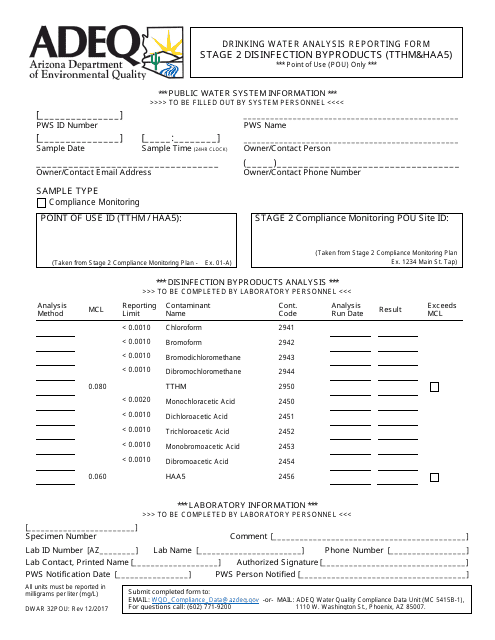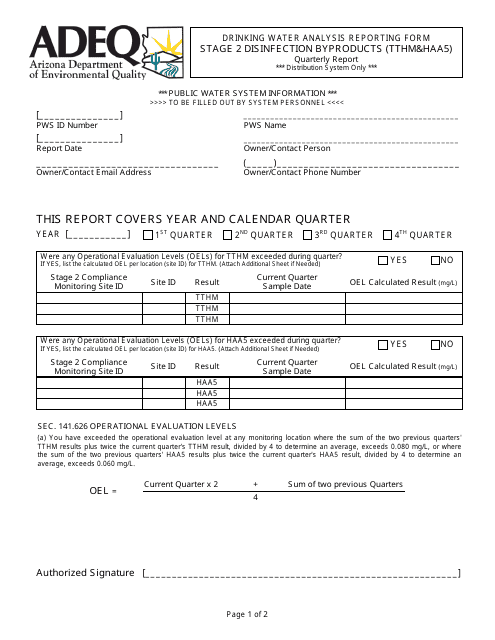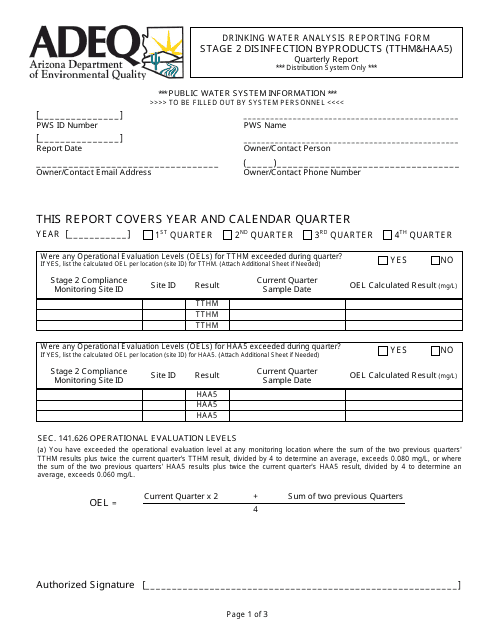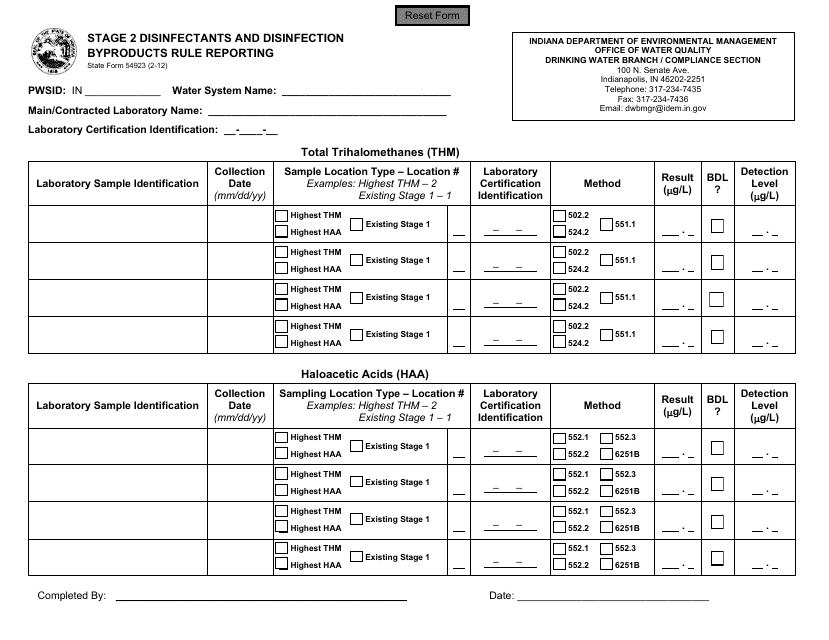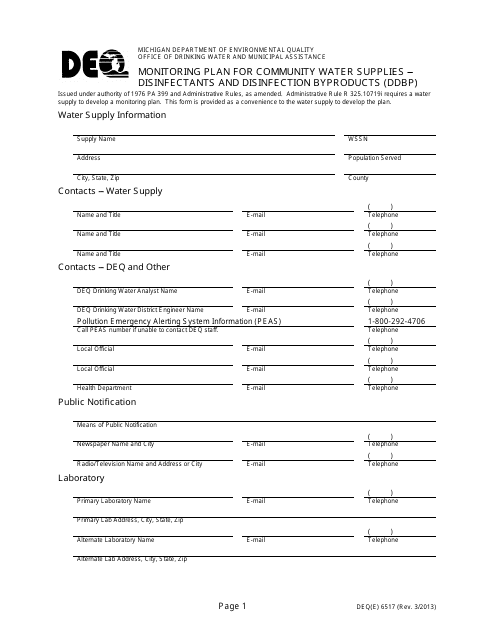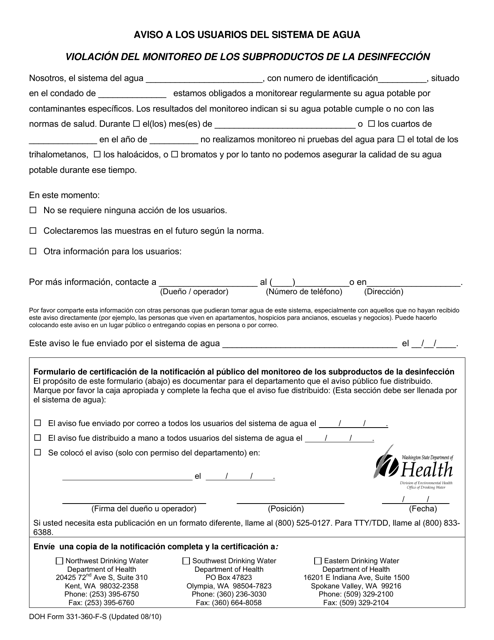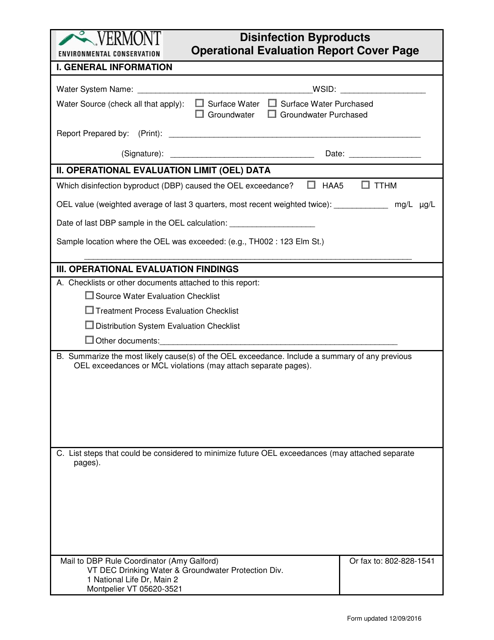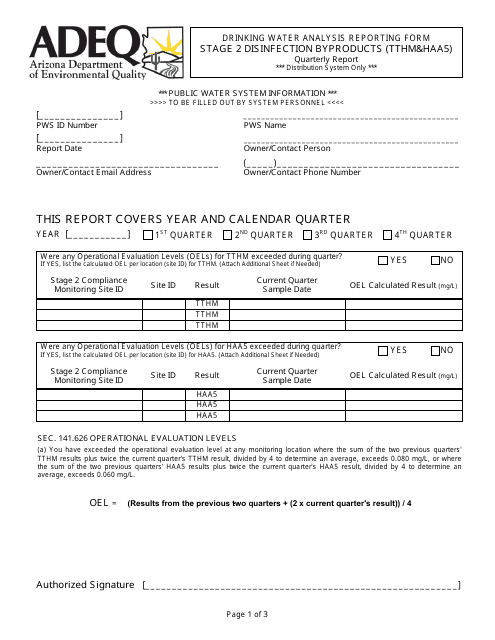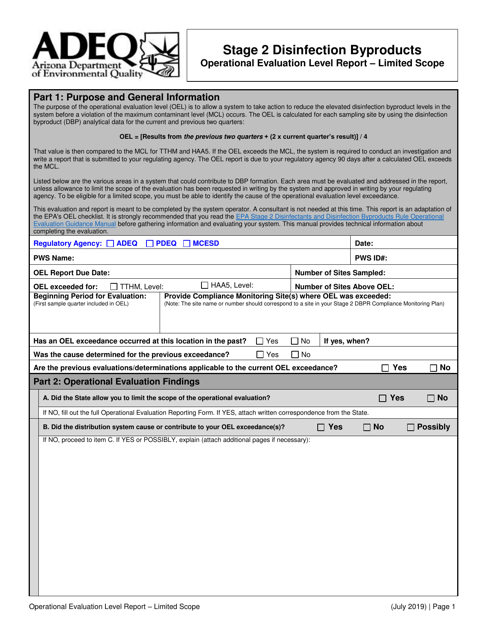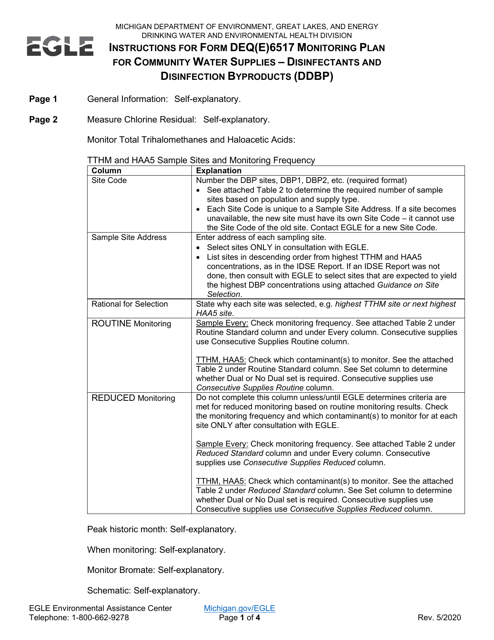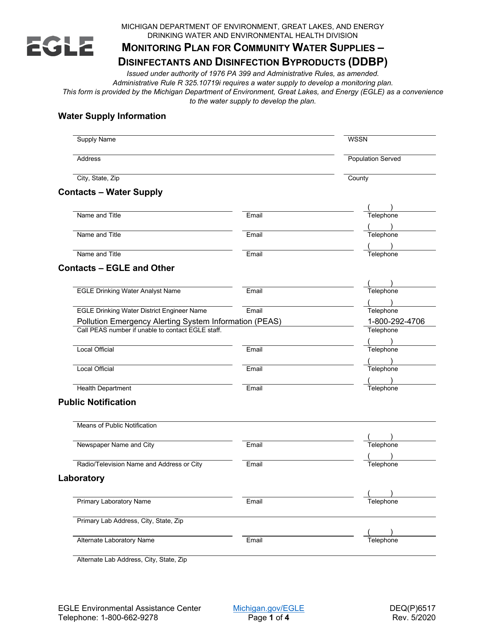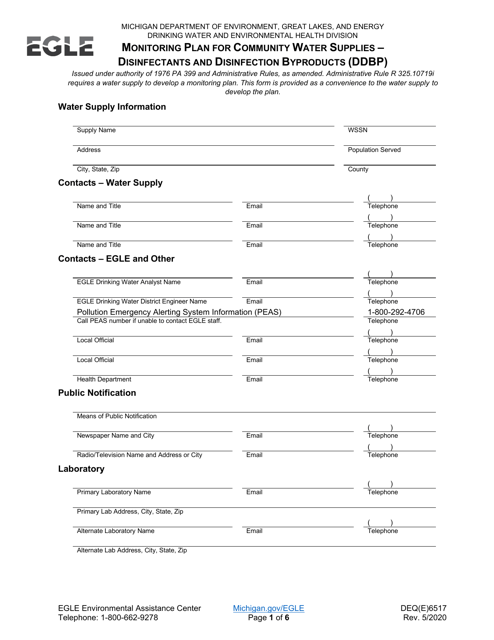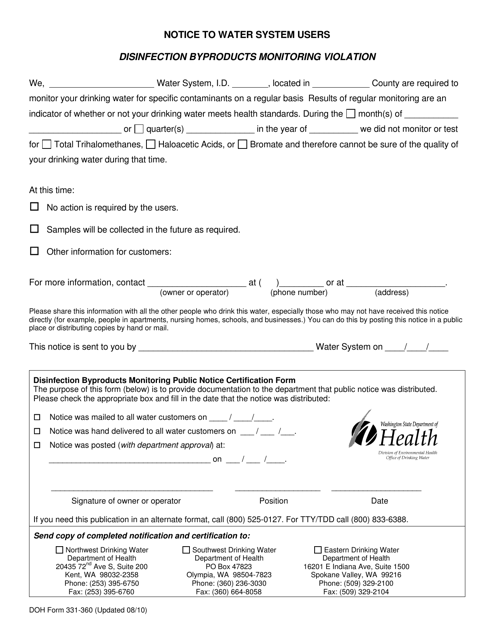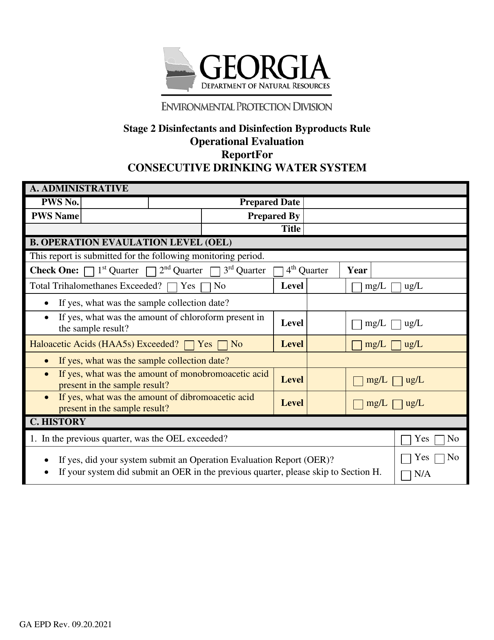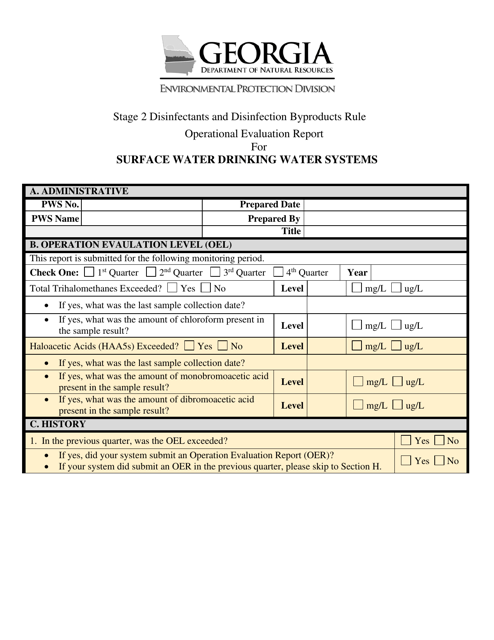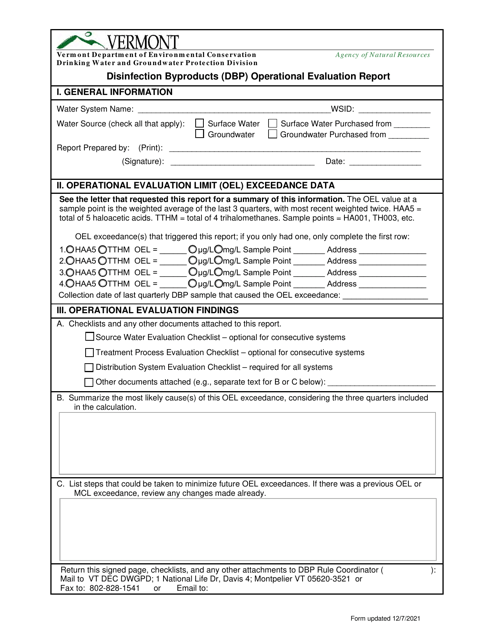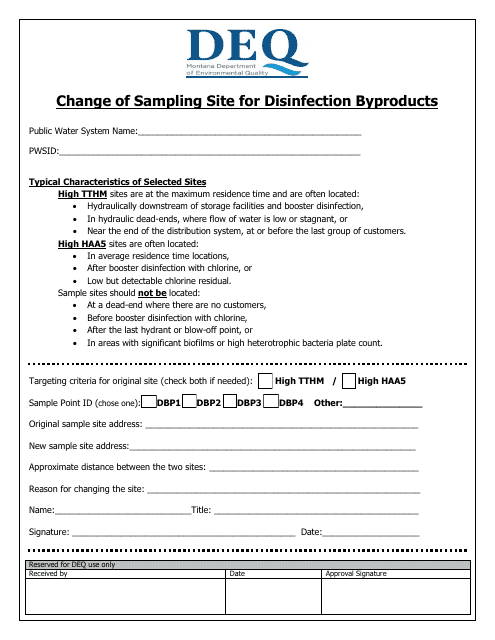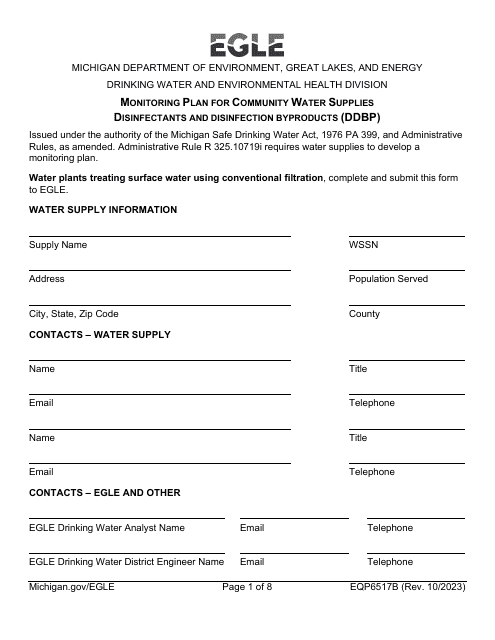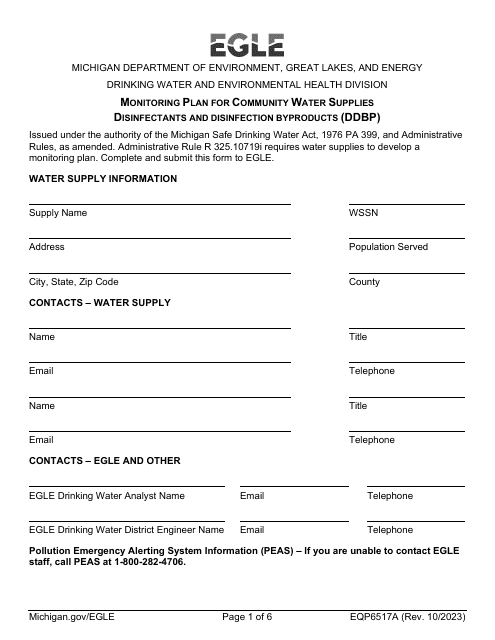Disinfection Byproducts Templates
Are you concerned about the presence of disinfection byproducts in your water supply? Disinfection byproducts, also known as DBPs, are a group of chemicals that form when disinfectants, such as chlorine, react with organic matter in water. These byproducts can have potential health risks and regulatory standards have been established to monitor and control their levels in drinking water.
At Templateroller.com, we understand the importance of ensuring the safety and quality of your drinking water. That's why we offer a comprehensive collection of documents related to disinfection byproducts. Our extensive database includes various forms, monitoring plans, and operational evaluation reports from different states, such as Indiana, Michigan, Washington, Georgia, and Vermont.
Whether you are a water treatment professional or a concerned citizen, our collection of documents will provide you with valuable resources to better understand and address disinfection byproducts. We strive to keep our document database up-to-date and relevant, so you can trust the information you find here.
Don't let disinfection byproducts compromise the quality of your water. Explore our collection of documents on disinfection byproducts and take the necessary steps to ensure the safety and well-being of your community. Together, we can make a difference in water quality.
Documents:
20
This Form is used for requesting a change of sampling site for disinfection byproducts (TTHM and HAA5) in Iowa.
This Form is used for reporting the results of drinking water analysis for disinfection byproducts in Arizona, specifically Stage 2 Disinfection Byproducts (TTHM & HAA5).
This Form is used for reporting the quarterly analysis of Stage 2 Disinfection Byproducts (TTHM & HAA5) in drinking water in Arizona.
This form is used for reporting quarterly data on Stage 2 Disinfection Byproducts (TTHM & HAA5) in drinking water in Arizona.
This Form is used for reporting compliance with the Stage 2 Disinfectants and Disinfection Byproducts Rule in the state of Indiana.
This form is used for developing a monitoring plan for community water supplies in Michigan to monitor levels of disinfectants and disinfection byproducts (DDBP). It is an important document for ensuring the safety and quality of drinking water.
This document is for notifying water system users in Washington about a violation of the disinfection byproducts monitoring.
This document provides an operational evaluation report on disinfection byproducts in Vermont. It details the findings and recommendations for improving water treatment processes to minimize the formation of these byproducts.
This document provides a limited scope operational evaluation report for disinfection byproducts in Arizona. It assesses the level of disinfection byproducts during stage 2 disinfection.
This type of document provides instructions for completing Form DEQ(E)6517, which is used for creating a monitoring plan for community water supplies in Michigan. The plan focuses on monitoring disinfectants and disinfection byproducts (DBPs) in the water supply.
This form is used for creating a monitoring plan for community water supplies in Michigan to measure disinfectants and disinfection byproducts (DDBP).
This form is used for monitoring the levels of disinfectants and disinfection byproducts in community water supplies in Michigan.
This form is used for monitoring violations of disinfection byproducts in Washington state.
This document provides an operational evaluation report for a consecutive drinking water system in Georgia, United States, in relation to the Stage 2 Disinfectants and Disinfection Byproducts Rule. It assesses the system's compliance with regulations on disinfectants and the presence of byproducts in the drinking water supply.
This document provides an operational evaluation report for surface water drinking water systems in Georgia, United States, regarding the Stage 2 Disinfectants and Disinfection Byproducts Rule. It evaluates the effectiveness of disinfection processes and the presence of disinfection byproducts in the water system.
This document is a report used in Vermont to evaluate the operational aspects of disinfection byproducts (DBPs). It provides an assessment of the effectiveness and efficiency of DBP control measures.
This form is used for changing the sampling site for disinfection byproducts in the state of Montana.

